#virtual networking
Text
How to Host Successful Virtual Events for Non-Profits
First off, clear planning is your best friend. Decide on the goals of your event. Are you aiming to raise funds, increase awareness, or maybe both? Once you have your goals set, everything else will start falling into place, from your target audience to the platforms you’ll use.
#Virtual Events#Event Hosting#Online Conferences#Webinars#Virtual Networking#Event Management#Digital Events#Virtual Engagement#Remote Collaboration#Technology Events
0 notes
Text
How to Be a Virtual Assistant: Your Guide to Thriving in the Digital Space
Virtual assistants have become increasingly popular, especially in today’s digital-driven landscape. By harnessing a variety of skills and technologies, VAs support businesses and entrepreneurs across various sectors. If you’re considering diving into this promising profession, here’s what you need to know:
Understanding the Role of a Virtual AssistantA virtual assistant (VA) is a professional…

View On WordPress
#Digital Workspace#Make money online#Online Income#Remote Work#VA Challenges#VA Guide#VA Marketing#virtual assistant#Virtual Assistant Skills#Virtual Assistant Training#Virtual Networking#work from home
0 notes
Photo

Find out how Skylark can help improve your business with our comprehensive IT Infrastructure Services portfolio. We provide tailored solutions for small businesses and enterprises of all sizes.
#digitaltransformation#it infrastructure#it#sectors#softwaredefined#network#router#vendor#solution#serviceprovider#fortinet#securestorage#itserviceprovider#infrastructure#cybersecurity#threats#complexity#branch#virtual networking#broadband#cost#maintenance#skylarkinfo#skylark#sdwan
0 notes
Text
me sending yet another email to a French public service to ask them why they use so many gratuitous English words in a service that's supposed to be non-discriminatory and accessible to everyone in the country

#this time it's about the paris library network which offers new book suggestions every month#and so many of the category titles are in english..... why? all the books are in french#'cosy mystery' 'space opera' 'road trips' 'climate fiction' < all of these were in english#i don't care how widespread some of these phrases are; you are public libraries and the public speaks french#do you really want to discourage people who don't read in english from clicking the links to check out the books?#why are you doing this. i am throwing virtual tomatoes at you#a lot of older people are confused or intimidated by this deluge of english loanwords. fuck them i guess?#and yes i picked napoléon in waterloo because i know this is a losing battle#même à la fnac on voit des intitulés de rayon en anglais alors que le rayon ne contient que des livres français...
555 notes
·
View notes
Text

📣 let's have a classic vtuber networking thread! 🤝
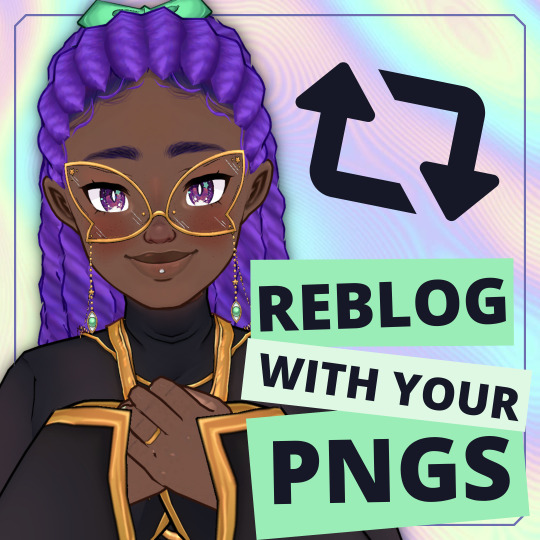
to participate, just REBLOG ♻️ this post with your PNG and a little bit about you 👋 - let's see how long we can make the chain!

#vtuber uprising#envtuber#envtubers#indie vtuber#vtuberen#networking#vtuber networking#vtuber pngs#vtuber introductions#vtuber intros#twitch#youtube#streamer#live streamer#live streamers#vtubers#vtuber#vroid#3d vtuber#virtual youtuber#mrsmothmom#i'll add folks to the vtuber directory also :3#i hope everyone has fun!
1K notes
·
View notes
Text
The (open) web is good, actually
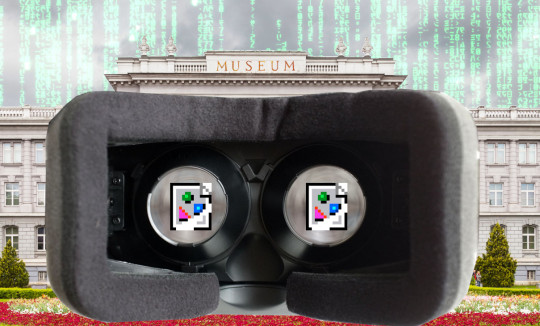
I'll be at the Studio City branch of the LA Public Library tonight (Monday, November 13) at 1830hPT to launch my new novel, The Lost Cause. There'll be a reading, a talk, a surprise guest (!!) and a signing, with books on sale. Tell your friends! Come on down!

The great irony of the platformization of the internet is that platforms are intermediaries, and the original promise of the internet that got so many of us excited about it was disintermediation – getting rid of the middlemen that act as gatekeepers between community members, creators and audiences, buyers and sellers, etc.
The platformized internet is ripe for rent seeking: where the platform captures an ever-larger share of the value generated by its users, making the service worst for both, while lock-in stops people from looking elsewhere. Every sector of the modern economy is less competitive, thanks to monopolistic tactics like mergers and acquisitions and predatory pricing. But with tech, the options for making things worse are infinitely divisible, thanks to the flexibility of digital systems, which means that product managers can keep subdividing the Jenga blocks they pulling out of the services we rely on. Combine platforms with monopolies with digital flexibility and you get enshittification:
https://pluralistic.net/2023/01/21/potemkin-ai/#hey-guys
An enshittified, platformized internet is bad for lots of reasons – it concentrates decisions about who may speak and what may be said into just a few hands; it creates a rich-get-richer dynamic that creates a new oligarchy, with all the corruption and instability that comes with elite capture; it makes life materially worse for workers, users, and communities.
But there are many other ways in which the enshitternet is worse than the old good internet. Today, I want to talk about how the enshitternet affects openness and all that entails. An open internet is one whose workings are transparent (think of "open source"), but it's also an internet founded on access – the ability to know what has gone before, to recall what has been said, and to revisit the context in which it was said.
At last week's Museum Computer Network conference, Aaron Straup Cope gave a talk on museums and technology called "Wishful Thinking – A critical discussion of 'extended reality' technologies in the cultural heritage sector" that beautifully addressed these questions of recall and revisiting:
https://www.aaronland.info/weblog/2023/11/11/therapy/#wishful
Cope is a museums technologist who's worked on lots of critical digital projects over the years, and in this talk, he addresses himself to the difference between the excitement of the galleries, libraries, archives and museums (GLAM) sector over the possibilities of the web, and why he doesn't feel the same excitement over the metaverse, and its various guises – XR, VR, MR and AR.
The biggest reason to be excited about the web was – and is – the openness of disintermediation. The internet was inspired by the end-to-end principle, the idea that the network's first duty was to transmit data from willing senders to willing receivers, as efficiently and reliably as possible. That principle made it possible for whole swathes of people to connect with one another. As Cope writes, openness "was not, and has never been, a guarantee of a receptive audience or even any audience at all." But because it was "easy and cheap enough to put something on the web," you could "leave it there long enough for others to find it."
That dynamic nurtured an environment where people could have "time to warm up to ideas." This is in sharp contrast to the social media world, where "[anything] not immediately successful or viral … was a waste of time and effort… not worth doing." The social media bias towards a river of content that can't be easily reversed is one in which the only ideas that get to spread are those the algorithm boosts.
This is an important way to understand the role of algorithms in the context of the spread of ideas – that without recall or revisiting, we just don't see stuff, including stuff that might challenge our thinking and change our minds. This is a much more materialistic and grounded way to talk about algorithms and ideas than the idea that Big Data and AI make algorithms so persuasive that they can control our minds:
https://pluralistic.net/2023/11/06/attention-rents/#consumer-welfare-queens
As bad as this is in the social media context, it's even worse in the context of apps, which can't be linked into, bookmarked, or archived. All of this made apps an ominous sign right from the beginning:
https://memex.craphound.com/2010/04/01/why-i-wont-buy-an-ipad-and-think-you-shouldnt-either/
Apps interact with law in precisely the way that web-pages don't. "An app is just a web-page wrapped in enough IP to make it a crime to defend yourself against corporate predation":
https://pluralistic.net/2023/08/27/an-audacious-plan-to-halt-the-internets-enshittification-and-throw-it-into-reverse/
Apps are "closed" in every sense. You can't see what's on an app without installing the app and "agreeing" to its terms of service. You can't reverse-engineer an app (to add a privacy blocker, or to change how it presents information) without risking criminal and civil liability. You can't bookmark anything the app won't let you bookmark, and you can't preserve anything the app won't let you preserve.
Despite being built on the same underlying open frameworks – HTTP, HTML, etc – as the web, apps have the opposite technological viewpoint to the web. Apps' technopolitics are at war with the web's technopolitics. The web is built around recall – the ability to see things, go back to things, save things. The web has the technopolitics of a museum:
https://www.aaronland.info/weblog/2014/09/11/brand/#dconstruct
By comparison, apps have the politics of a product, and most often, that product is a rent-seeking, lock-in-hunting product that wants to take you hostage by holding something you love hostage – your data, perhaps, or your friends:
https://www.eff.org/deeplinks/2021/08/facebooks-secret-war-switching-costs
When Anil Dash described "The Web We Lost" in 2012, he was describing a web with the technopolitics of a museum:
where tagging was combined with permissive licenses to make it easy for people to find and reuse each others' stuff;
where it was easy to find out who linked to you in realtime even though most of us were posting to our own sites, which they controlled;
where a link from one site to another meant one person found another person's contribution worthy;
where privacy-invasive bids to capture the web were greeted with outright hostility;
where every service that helped you post things that mattered to you was expected to make it easy for you take that data back if you changed services;
where inlining or referencing material from someone else's site meant following a technical standard, not inking a business-development deal;
https://www.anildash.com/2012/12/13/the_web_we_lost/
Ten years later, Dash's "broken tech/content culture cycle" described the web we live on now:
https://www.anildash.com/2022/02/09/the-stupid-tech-content-culture-cycle/
found your platform by promising to facilitate your users' growth;
order your technologists and designers to prioritize growth above all other factors and fire anyone who doesn't deliver;
grow without regard to the norms of your platform's users;
plaster over the growth-driven influx of abusive and vile material by assigning it to your "most marginalized, least resourced team";
deliver a half-assed moderation scheme that drives good users off the service and leaves no one behind but griefers, edgelords and trolls;
steadfastly refuse to contemplate why the marginalized users who made your platform attractive before being chased away have all left;
flail about in a panic over illegal content, do deals with large media brands, seize control over your most popular users' output;
"surface great content" by algorithmically promoting things that look like whatever's successful, guaranteeing that nothing new will take hold;
overpay your top performers for exclusivity deals, utterly neglect any pipeline for nurturing new performers;
abuse your creators the same ways that big media companies have for decades, but insist that it's different because you're a tech company;
ignore workers who warn that your product is a danger to society, dismiss them as "millennials" (defined as "anyone born after 1970 or who has a student loan")
when your platform is (inevitably) implicated in a murder, have a "town hall" overseen by a crisis communications firm;
pay the creator who inspired the murder to go exclusive on your platform;
dismiss the murder and fascist rhetoric as "growing pains";
when truly ghastly stuff happens on your platform, give your Trust and Safety team a 5% budget increase;
chase growth based on "emotionally engaging content" without specifying whether the emotions should be positive;
respond to ex-employees' call-outs with transient feelings of guilt followed by dismissals of "cancel culture":
fund your platforms' most toxic users and call it "free speech";
whenever anyone disagrees with any of your decisions, dismiss them as being "anti-free speech";
start increasing how much your platform takes out of your creators' paychecks;
force out internal dissenters, dismiss external critics as being in conspiracy with your corporate rivals;
once regulation becomes inevitable, form a cartel with the other large firms in your sector and insist that the problem is a "bad algorithm";
"claim full victim status," and quit your job, complaining about the toll that running a big platform took on your mental wellbeing.
https://pluralistic.net/2022/02/18/broken-records/#dashes
The web wasn't inevitable – indeed, it was wildly improbable. Tim Berners Lee's decision to make a new platform that was patent-free, open and transparent was a complete opposite approach to the strategy of the media companies of the day. They were building walled gardens and silos – the dialup equivalent to apps – organized as "branded communities." The way I experienced it, the web succeeded because it was so antithetical to the dominant vision for the future of the internet that the big companies couldn't even be bothered to try to kill it until it was too late.
Companies have been trying to correct that mistake ever since. After three or four attempts to replace the web with various garbage systems all called "MSN," Microsoft moved on to trying to lock the internet inside a proprietary browser. Years later, Facebook had far more success in an attempt to kill HTML with React. And of course, apps have gobbled up so much of the old, good internet.
Which brings us to Cope's views on museums and the metaverse. There's nothing intrinsically proprietary about virtual worlds and all their permutations. VRML is a quarter of a century old – just five years younger than Snow Crash:
https://en.wikipedia.org/wiki/VRML
But the current enthusiasm for virtual worlds isn't merely a function of the interesting, cool and fun experiences you can have in them. Rather, it's a bid to kill off whatever is left of the old, good web and put everything inside a walled garden. Facebook's metaverse "is more of the same but with a technical footprint so expensive and so demanding that it all but ensures it will only be within the means of a very few companies to operate."
Facebook's VR headsets have forward-facing cameras, turning every users into a walking surveillance camera. Facebook put those cameras there for "pass through" – so they can paint the screens inside the headset with the scene around you – but "who here believes that Facebook doesn't have other motives for enabling an always-on camera capturing the world around you?"
Apple's VisionPro VR headset is "a near-perfect surveillance device," and "the only thing to save this device is the trust that Apple has marketed its brand on over the last few years." Cope notes that "a brand promise is about as fleeting a guarantee as you can get." I'll go further: Apple is already a surveillance company:
https://pluralistic.net/2022/11/14/luxury-surveillance/#liar-liar
The technopolitics of the metaverse are the opposite of the technopolitics of the museum – even moreso than apps. Museums that shift their scarce technology budgets to virtual worlds stand a good chance of making something no one wants to use, and that's the best case scenario. The worst case is that museums make a successful project inside a walled garden, one where recall is subject to corporate whim, and help lure their patrons away from the recall-friendly internet to the captured, intermediated metaverse.
It's true that the early web benefited from a lot of hype, just as the metaverse is enjoying today. But the similarity ends there: the metaverse is designed for enclosure, the web for openness. Recall is a historical force for "the right to assembly… access to basic literacy… a public library." The web was "an unexpected gift with the ability to change the order of things; a gift that merits being protected, preserved and promoted both internally and externally." Museums were right to jump on the web bandwagon, because of its technopolitics. The metaverse, with its very different technopolitics, is hostile to the very idea of museums.
In joining forces with metaverse companies, museums strike a Faustian bargain, "because we believe that these places are where our audiences have gone."
The GLAM sector is devoted to access, to recall, and to revisiting. Unlike the self-style free speech warriors whom Dash calls out for self-serving neglect of their communities, the GLAM sector is about preservation and access, the true heart of free expression. When a handful of giant companies organize all our discourse, the ability to be heard is contingent on pleasing the ever-shifting tastes of the algorithm. This is the problem with the idea that "freedom of speech isn't freedom of reach" – if a platform won't let people who want to hear from you see what you have to say, they are indeed compromising freedom of speech:
https://pluralistic.net/2022/12/10/e2e/#the-censors-pen
Likewise, "censorship" is not limited to "things that governments do." As Ada Palmer so wonderfully describes it in her brilliant "Why We Censor: from the Inquisition to the Internet" speech, censorship is like arsenic, with trace elements of it all around us:
https://www.youtube.com/watch?v=uMMJb3AxA0s
A community's decision to ban certain offensive conduct or words on pain of expulsion or sanction is censorship – but not to the same degree that, say, a government ban on expressing certain points of view is. However, there are many kinds of private censorship that rise to the same level as state censorship in their impact on public discourse (think of Moms For Liberty and their book-bannings).
It's not a coincidence that Palmer – a historian – would have views on censorship and free speech that intersect with Cope, a museum worker. One of the most brilliant moments in Palmer's speech is where she describes how censorship under the Inquistion was not state censorship – the Inquisition was a multinational, nongovernmental body that was often in conflict with state power.
Not all intermediaries are bad for speech or access. The "disintermediation" that excited early web boosters was about escaping from otherwise inescapable middlemen – the people who figured out how to control and charge for the things we did with one another.
When I was a kid, I loved the writing of Crad Kilodney, a short story writer who sold his own self-published books on Toronto street-corners while wearing a sign that said "VERY FAMOUS CANADIAN AUTHOR, BUY MY BOOKS" (he also had a sign that read, simply, "MARGARET ATWOOD"). Kilodney was a force of nature, who wrote, edited, typeset, printed, bound, and sold his own books:
https://www.theglobeandmail.com/arts/books/article-late-street-poet-and-publishing-scourge-crad-kilodney-left-behind-a/
But there are plenty of writers out there that I want to hear from who lack the skill or the will to do all of that. Editors, publishers, distributors, booksellers – all the intermediaries who sit between a writer and their readers – are not bad. They're good, actually. The problem isn't intermediation – it's capture.
For generations, hucksters have conned would-be writers by telling them that publishing won't buy their books because "the gatekeepers" lack the discernment to publish "quality" work. Friends of mine in publishing laughed at the idea that they would deliberately sideline a book they could figure out how to sell – that's just not how it worked.
But today, monopolized film studios are literally annihilating beloved, high-priced, commercially viable works because they are worth slightly more as tax writeoffs than they are as movies:
https://deadline.com/2023/11/coyote-vs-acme-shelved-warner-bros-discovery-writeoff-david-zaslav-1235598676/
There's four giant studios and five giant publishers. Maybe "five" is the magic number and publishing isn't concentrated enough to drop whole novels down the memory hole for a tax deduction, but even so, publishing is trying like hell to shrink to four:
https://pluralistic.net/2022/11/07/random-penguins/#if-you-wanted-to-get-there-i-wouldnt-start-from-here
Even as the entertainment sector is working to both literally and figuratively destroy our libraries, the cultural heritage sector is grappling with preserving these libraries, with shrinking budgets and increased legal threats:
https://blog.archive.org/2023/03/25/the-fight-continues/
I keep meeting artists of all description who have been conditioned to be suspicious of anything with the word "open" in its name. One colleague has repeatedly told me that fighting for the "open internet" is a self-defeating rhetorical move that will scare off artists who hear "open" and think "Big Tech ripoff."
But "openness" is a necessary precondition for preservation and access, which are the necessary preconditions for recall and revisiting. Here on the last, melting fragment of the open internet, as tech- and entertainment-barons are seizing control over our attention and charging rent on our ability to talk and think together, openness is our best hope of a new, good internet. T
he cultural heritage sector wants to save our creative works. The entertainment and tech industry want to delete them and take a tax writeoff.
As a working artist, I know which side I'm on.

If you'd like an essay-formatted version of this post to read or share, here's a link to it on pluralistic.net, my surveillance-free, ad-free, tracker-free blog:
https://pluralistic.net/2023/11/13/this-is-for-everyone/#revisiting

Image:
Diego Delso (modified)
https://commons.wikimedia.org/wiki/File:Museo_Mimara,_Zagreb,_Croacia,_2014-04-20,_DD_01.JPG
CC BY-SA 4.0
https://creativecommons.org/licenses/by-sa/4.0/
#pluralistic#ar#xr#vr#augmented reality#extended reality#virtual reality#museums#cultural preservation#aaron cope#Museum Computer Network#cultural heritage#glam#access#open access#revisiting#mr#mixed reality#asynchronous#this is for everyone#freedom of reach#gatekeepers#metaverse#technofeudalism#privacy#brick on the face#rent-seeking
185 notes
·
View notes
Text
The first public Vtuber was Moxy from The Moxy Show (Cartoon Network) but nobody knows this because out of the show's 25 episodes, 3 are publicly available. On a semi related related note I'm pretty sure the Toonami robot has two dads

161 notes
·
View notes
Text

VARTIST NETWORK POST! 🎨📮
Are you someone that draws vtuber models, designs logos, designs stream overlays, draws stream pngs, draws twitch/discord emotes, etc for vtubers who came from Twitter?
Let's all find and support each other here on Tumblr!
(and have vtubers who need stream assets find us here)
How it works:
Reblog with your best vtuber work! (can be a c0mmission or not)
Feel free to introduce yourself 🧡
Check the reblog list of this post so you can see other artists who reblogged with their own work!
Make sure you have the "Comments and Tags" option when you look at the reblogs to see everyone's work!
be nice >:l
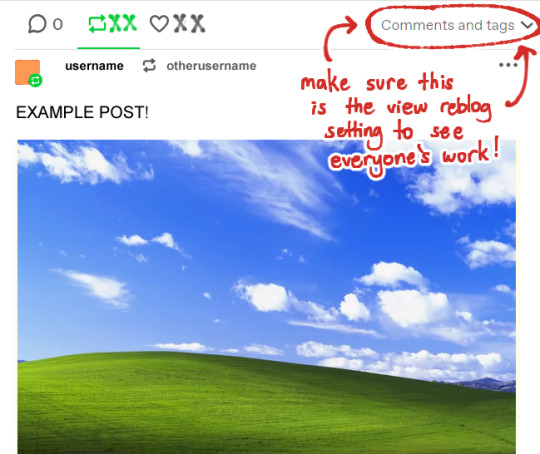
#vtuber#vtuber uprising#envtuber#vtuber networking#vtuber introduction#artists on tumblr#artists from twitter#twitch#youtube#streamer#virtual youtuber#indie vtuber#live2d
523 notes
·
View notes
Text
VPNs aren't just for pirates and company data anymore
A friend complained to me that they couldn't access pr0n anymore because the government is now requiring ID to verify age where they are, and due to data leaks and privacy issues, didn't want to share their ID even though they're of legal age.
Shit like this doesn't work on the intended target. It only frustrates people who are aren't tech savvy while a lot of kids have already found their way around it because that's what kids do ¯\_(ツ)_/¯
When I talk about VPNs (virtual private networks), non-tech savvy people's eyes glaze over 😂
It sounds like complicated, unknowable magic. It's not! And you don't even have to understand it to use it!
With the government and ISPs (internet service providers) invading privacy more and more and hackers breaking in and stealing user data from companies, VPNs are becoming necessary.
Some Things a VPN Does for You:
hides your data from others
can make your internet speeds faster if your ISP does speed throttling (purposely making your speed slower)
hides what you're doing from your ISP
keeps you safer from some malware, viruses, hackers, and trackers
allows you to access things that are either restricted in your area or not available in your area (such as content in other countries)
keeps you safer when you're out in public connected to wifi
Below is a basic infographic on how VPNs work. When you access the internet, a VPN encrypts your data - making it into a secret code that can't be read by anyone else including your ISP.
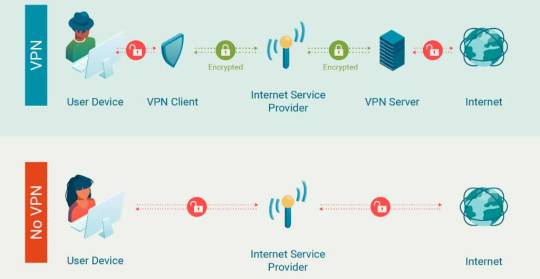
Tech companies, ISPs, etc. want you to think VPNs are complicated so that you won't use them.
When searching for a free VPN, please be aware that a lot of the free VPN services out there are malware or full of viruses and trackers.
Either do some research into which one to choose or use a paid VPN service. You can either pay monthly or yearly - the yearly is always cheaper in the long run.
Some of the Top Rated VPN Services:
ExpressVPN $7 - $13/month
NordVPN $3 - $13/month
Surfshark $2 - $14/month
PrivateInternetAccess $2 - $12/month
ProtonVPN (some sites block this one) $4 - $10/month
CyberGhost $2 - $13/month
I use ExpressVPN, so for the purposes of this post, I'm going to use screenshots from ExpressVPN.
Once you have an account, download the program from the website to your desktop/laptop or find the app on Android or iOS app stores.
Signing in requires a code that the VPN will email to you that unlocks all the features. Pay attention when the program installs because it'll ask you about preferences, and you can easily check yes on blocking pr0n when that's the reason you wanted a VPN in the first place 😂
When the program is open, you'll see this:

As you can see in the screenshot, not only do I have the program, but I have an ExpressVPN icon on my browser. The program installs this automatically, and when the program is running, the icon will have a green checkmark on it so you know it's working in your browser.
You'll notice I've recently connected using Japan. I did this so I could watch a series that isn't available outside of Japan.
The program automatically chooses a location near you, but if you want to access things that are restricted to you, make sure you click on the three dots to the right of the selected location (see screenshot below) and search for a state/country/place that your content will be available in.

Once your location is selected, click on the start/power button, and you'll get a popup notification from your computer that ExpressVPN is connected.
Go to the site you want to use and use it like you normally would.
Here's what it should look like when it's running correctly:

Keep in mind that if you leave a VPN running all the time (which is perfectly fine to do), search engines like Google will assume you live wherever ExpressVPN tells it you live, so searching for "stores near me" will give you results that aren't close to you.
When you're done using the VPN, just hit the power button again and it shuts off.
I use this on all my handheld devices, my desktop, and my laptop for business and personal reasons. I'm a pirate, and I've been using VPNs for a long time, yet none of the ISPs I've used have ever given me a warning about torrenting.
Good luck, and enjoy all the new things you can access!
BTW for anybody wondering, my desktop wallpaper is a map of the world's time zones. So pretty!! 😍
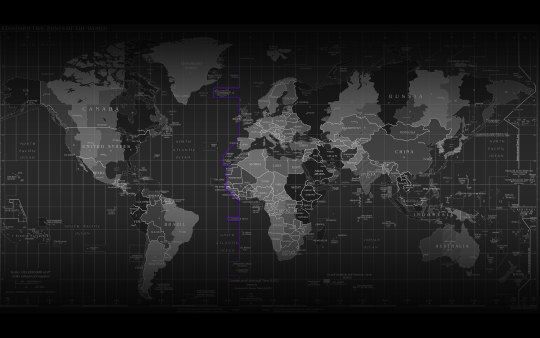
56 notes
·
View notes
Photo

⭐ STAY YOUNG ⭐
#codename kids next door#knd#cknd#sector v#dcfdtl#numbuh 1#numbuh 2#numbuh 3#numbuh 4#numbuh 5#cartoon network#virtually almost everyone#i know i missed some people i'm sorry :''#BUT HERE IT IS#now i can sleep#HAPPY ANNIVERSARY OPERATIVES#omufarts#nigel uno#abigail lincoln#hoagie gilligan#wallabee beetles#kuki sanban
436 notes
·
View notes
Note
you have 7+ computers ? ? i am so curious about the uses for them o_o
linux:
drawing laptop
older laptop w shitty battery
mini PC i use to clone a bunch of laptops in my home office (work related)
windows
work laptop
gaming PC/general use
old art mini PC, i don't rly use this much bc drawing worked nicer on Linux and I'm on hiatus w music for the foreseeable future
mini PC mounted to the ceiling by a projector in the living room, for movie nights n stuff :3 this is the one that could be moved to Linux
#technically i have a microcontroller running and a few inactive raspberry pis laying around but yeag#oh my god and the virtual machines..#i know there's at least 8 or 12 between 2 systems#there might be another 4 or 6 if there's another computer running virtual machines#I'm not about to go check those though 😹 Even i don't know all of them off the top of my head#some are for testing an OS or some software or they're running something useful#or a whole virtual network of useful stuff working together 0:#computers r neat and u can make them talk to each other (❁´◡`❁) ♡
21 notes
·
View notes
Text
Virtual Character Tourney - Round 2 - Bracket B - 4


Propaganda below (May contain spoilers!)
MegaMan.EXE propaganda:
A dying child given new life, helping his brother through the mundane tasks of life…until terrorists try destroying everything. Then, he must risk his existence to save both his world, and the one he can only watch.
Ok but seriously his story is incredible, he's super likeable, and is a massive dork. You can find a program that just makes MegaMan.EXE tell bad puns. I love him.
Dr. Coomer propaganda:
Dr. Coomer is the EMBODIMENT of a old and broken AI. Silly man, just a very old guy who has a crisis over realizing that he's in a game because he went out of bounds. He runs into the same trap/enemy constantly because of one area at the beginning of the game, explodes anything with the word explosive on it, cannot stop greeting the player, recites the entirety of the 2012 Wikipedia article for chairs because was was sitting in one, and is basically a permanent tutorial npc. Someone fix this man's code please.
he is so sentient it hurts
he's a broken tutorial npc who becomes aware that he's trapped in a game and repeatedly tries to escape. he wanted to be a boxer instead of a scientist. he wants to live in super punch out for the super nintendo entertainment system but instead he's stuck in half life. you wouldn't leave him in half life, gordon? fucking half life? let him ou-- HELLO, GORDON!
#virtual character tourney#round 2#megaman.exe#mega man battle network#dr coomer#half life vr but the ai is self aware#hlvrai#character polls
29 notes
·
View notes
Text
How to Be a Virtual Assistant: Your Guide to Thriving in the Digital Space
Virtual assistants have become increasingly popular, especially in today’s digital-driven landscape. By harnessing a variety of skills and technologies, VAs support businesses and entrepreneurs across various sectors. If you’re considering diving into this promising profession, here’s what you need to know:
Understanding the Role of a Virtual AssistantA virtual assistant (VA) is a professional…

View On WordPress
#Digital Workspace#Make money online#Online Income#Remote Work#VA Challenges#VA Guide#VA Marketing#virtual assistant#Virtual Assistant Skills#Virtual Assistant Training#Virtual Networking#work from home
0 notes
Text
.
#okay so random tag post even though it's been ages#me thinks the current place i work is actually decent a la accepting-queer-ppl so?? miiiiight. consider actually putting my#pronouns in my email signature (which hardly gets used but shh) but like. the actual ones not the society/people assume anyway ones#idk i attended a virtual tech focused event for trans dov (yes early but they didn't want to put the event on sun) and you know when#everyone is just sharing their stories and experiences and it's just like... an overwhelming sense of community? anyway that#and since it was hosted by a professional org the topics were all workplace focused and mayhaps that's something i'm thinking abt for#this year. at least within our pride group I might be ready? wild bc for a long time tumblr has been the only place I feel comfy being 100%#myself. but hearing real people's stories makes me feel like that kind of community would be nice to have elsewhere too#and the whole looking to others also turns around into the leading by example thing bc then we had some breakout groups at the end for#networking which is not my favorite but! i did my intro and said I use she/her for work but will use she/they for this group and#then the next person said he/him at work but for this group he/they so that made me wonder if it was bc of me saying so first?#which if it was is kind of like oh. the way I'm looking for those people for me.. I can also be that for someone else#anyway this sounds dumb typed out but irl/professional me has always separated out queer identity so it's new to me#i'm allowed to be giddy okay. just a little. as a treat (is tumblr still using 'as a treat' i really hope so)#oh shit is this what gender euphoria feels like#alright that's it for now i think#gah emotions and whatnot#missed you all btw i'll start actually being online again soon#personal
16 notes
·
View notes
Text

#vtuber#envtuber#anime#twitch streamer#vartist#virtual streamer#vtuber networking#illustration#rats#rat#digital illustration#illustrators on tumblr#sketches
28 notes
·
View notes
Text

🙋 Vtuber Ask Game ✨
alrighty new folks line up! the ask game is a classic tumblr gig so let's have some fun with it.
How does it work? 🧠
pick an emoji from the list and drop it into my ask box, and i'll answer the question that goes with it! reblog this post to invite your followers to do the same~
Questions 🤔
💖 what's your favorite part of being a vtuber?
🧡 when is your next big event stream?
💛 what's your best skill?
💚 what upcoming game are you most excited for?
💙 who is your best vtuber friend?
💜 how did you first hear about vtubing?
🤎 who do you most want to collab with?
🖤 what skill do you want to improve in the most?
🤍 what is your first language?
💗 what is your favorite activity on stream?
💔 what's your least favorite part of being a vtuber?
☀️ what platform do you stream on and why?
🌙 what platform would you most like to try streaming on?
⭐ what's your biggest vtubing goal?
🪐 what region are you from?
✨ how do you feel about tumblr so far?
not sure how to "send an ask"? head to my blog homepage and check for the "ask" button (the ask button can be customized, so it may say something slightly different)
not sure if you're set up to accept asks from your followers? check in your blog settings
#vtuber uprising#envtuber#envtubers#indie vtuber#vtuberen#networking#vtuber networking#vtuber pngs#vtuber introductions#vtuber intros#twitch#youtube#streamer#live streamer#live streamers#vtubers#vtuber#vroid#3d vtuber#virtual youtuber#ask#ask me#ask away!#ask box#ask meme#ask game#asks#mrsmothmom#we had so much fun with the networking thread so far#i'm excited to see how this goes :3
662 notes
·
View notes